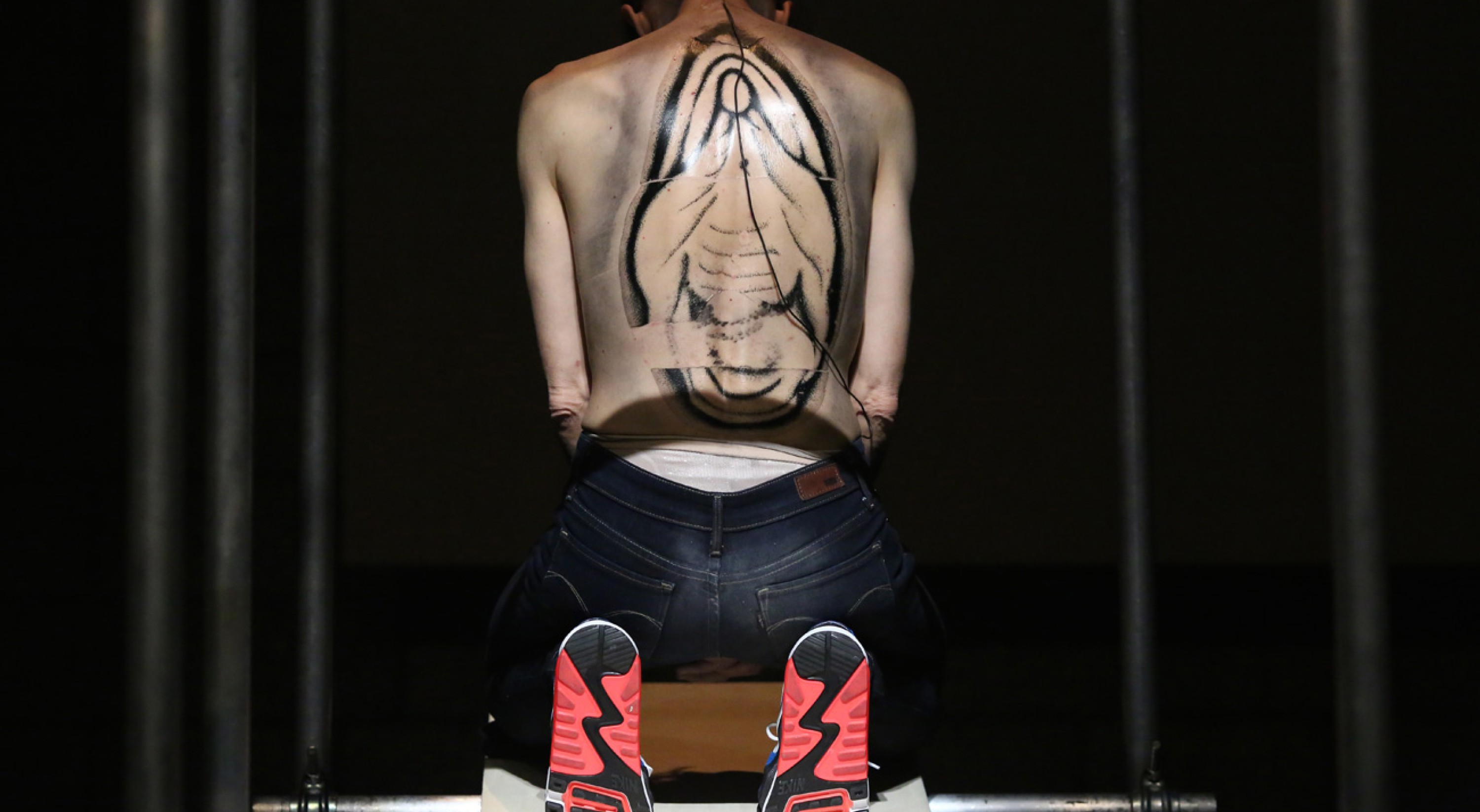Claudia Triozzi
Boomerang ou le retour à soi
novembernov 5 – 15
Conceived, directed, set, image and video design by, Claudia Triozzi
With Anne-Lise Le Gac and Claudia Triozzi
Music, Fernando Villanueva, Hahn Rowe
Text and voice, Claudia Triozzi
Technical coordinator and stage manager, Sylvain Labrosse
Sound manager, Samuel Pajand
Lighting designer, Yannick Fouassier
A production by DAM-CESPI (Paris) // A coproduction with Centre national de danse contemporaine (Angers) ; Festival NEXT (Eurometropolis Lille-Kortrijk-Tournai and Valenciennes) ; Centre chorégraphique national de Tours ; Abrons Arts Center (New York) ; FUSED – French US Exchange in Dance ; La Ménagerie de Verre (Paris) ; Théâtre des 13 Vents, CDN de Montpellier ; T2G – Théâtre de Gennevilliers, centre dramatique national de création contemporaine ; Festival d’Automne à Paris // In collaboration with T2G – Théâtre de Gennevilliers, centre dramatique national de création contemporaine ; Festival d’Automne à Paris // Programmed by Studio Centre chorégraphique national de Montpellier Languedoc-Roussillon ; Centre chorégraphique national de Franche-Comté à Belfort // With collaboration from Akademie Schloss Solitude in Stuttgart and Xing-Bologne // With support from Direction régionale des affaires culturelles d’Île-de-France – Ministère de la Culture et de la Communication
The piece was first presented on 26th November 2013 at Espace Pasolini in Valenciennes
What is Claudia Triozzi showing us by the on-stage screening of interviews of an archeologist attempting to describe an erotic scene or an Italian actress from the 1950’s confiding to us that, out of love, “Ho detto molti “no” (I’ve said lots of ‘“no’s”) ” ? What is this story that is being transmitted to us? Is it the story which these individuals put into words or that which is left unsaid? Is the artist telling us something about the birth of language and sexuality? Or is it about performance, particularly in the case of someone who declares, at the start of this new piece, that she “gives up her body to art”, in the way that others might donate their bodies to science? For the last thirty years, she has made it her goal to bring out the artifice of these theatrical conventions. Going back to oneself. Claudia Triozzi sings Caprice, “A dupe scene, that I dreamt about for far too long, agonizingly so”. Thus, what we create is a form of experience feedback, in which our surprise at this personal engagement registers on our face to boomerang effect. “Autobiography mixes up gender, voices, births and ages. The question reveals its different levels of meaning and opens up possibilities. It is all about still being able to perform ‘there’, where we pose the limits of what we are, and where the response cannot possibly be an affirmation. A stage opens itself up to you, unexpectedly.”
Claudia Triozzi, an Italian performance artist living in France since 1985, has performed for the choreographers Odile Duboc, Georges Appaix and François Verret. Since then, she has continued to reflect, in social terms, on the body’s ability or otherwise to embody know-how or a skill of some sort. In doing so, she continually brings into question the contours and various meanings that an individual’s artistic activity can have. Her interviews have lead to encounters with: a young female pastry chef (TORDRE, 2012), a butcher and stonemason (Pour une thèse vivante, 2011), and a jeweller and a flooring salesman (Dolled up, 2000). In her interviews, she asked about their practices as professionals. This in turn prompted her invention of mysterious plastic contraptions, composed of extraordinary practical objects, given a sense of order through dance, vocal and video work.
See also
In the same place
